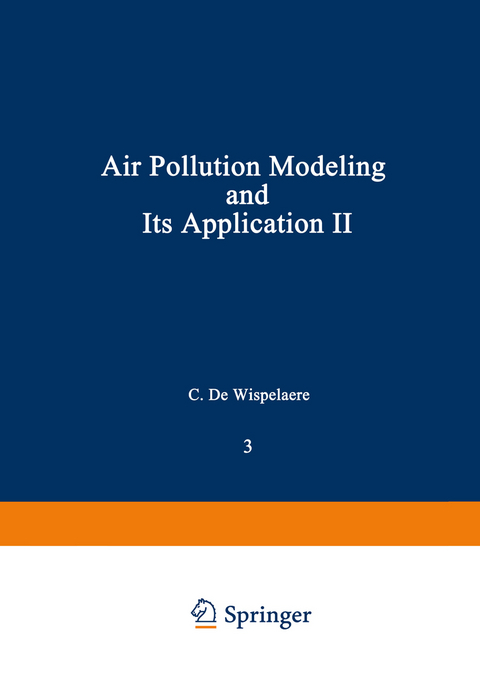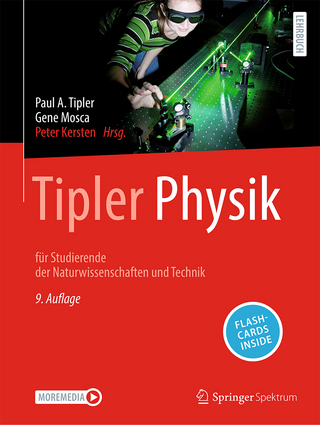
Air Pollution Modeling and Its Application II
Springer-Verlag New York Inc.
978-1-4684-7943-0 (ISBN)
I : Physical-Chemical Reactions in Plumes.- 1. Chemical transformation in plumes.- 2. A comparison between chemically reacting plume models and windtunnel experiments.- 3. Air pollutant reactions in major plumes transported over the North Sea.- 4. Solutions to the equation for surface depletion of a gaussian plume.- 5. Mathematical modeling of chemically reactive plumes in an urban environment.- 6. Chemical modeling studies of the long-range dispersion of power-plant plumes.- 7. A comparison of the regional scale effects on in-cloud conversion of SO2 to SO4= in an eight layer diabatic model with a single layer model.- 8. The washout of hydrogen fluoride.- 9. Performance evaluation of the empirical kinetic modeling approach (EKMA).- 10. Urban visual air quality : modeled and perceived.- 2 : Air Trajectory Models for Air Pollution Transport.- 11. A gaussian trajectory model for hazard evaluation for prolonged releases from nuclear reactors.- 12. Application of trajectory model to regional transport characterization.- 13. Refined air pollution model for calculating daily regional patterns and transfrontier exchanges of airborne sulfur in central and western Europe.- 14. On a method of evaluation of performance of a trajectory model for long-range transport of atmospheric pollutants.- 15. The pseudo-spectral technique in the computation of seasonal average concentrations and its comparison with the trajectory technique.- 16. A mesoscale air pollution transport model : outline and preliminary results.- 17. Initial evaluation of Canadian and United States regional models for transboundary air pollution.- 18. Comparison of an eulerian with a lagrangian type numerical air pollution dispersion model.- 19. Analysis of particles trajectories during a land-sea breeze cycle using two-dimensional numerical mesoscale models.- 20. Verification of a three-dimensional transport model using tetroon data from projects state and neros.- 21. A new trajectory model and its practical application for accident and risk assessments.- 22. A finite element flow model over the Alsace plain.- 23. Modifications of trajectory models needed for pollutant source-receptor analysis.- 24. Sensitivity analysis of a climatological air trajectory model.- 3 : Advanced Mathematical Techniques in Air Pollution Modeling.- 25. A model for pollutant concentration prediction in complex terrain.- 26. Pollutant dispersion in the Ekman layer using moment-reduced transport equations.- 27. A simple model for dispersion of non-buoyant particles inside a convective boundary layer.- 28. Dispersion from fugitive sources.- 29. A comparison with experimental data of several models for dispersion of heavy vapor clouds.- 30. Application of the sulfur transport eulerian model (STEM) to a sure data set.- 31. Particle simulation of inhomogeneous turbulent diffusion.- 32. The apt computer program for the numerical solution of problems in atmospheric dispersion.- 33. A three dimensional, finite element model for simulating heavier-than-air gaseous releases over variable terrain.- 34. Numerical solution of three-dimensional and time-dependent advection-diffusion equations by “orthogonal collocation on multiple elements”.- 35. Analysis of a finite release of a pollutant followed by an abrupt change of wind direction.- 36. Two-dimensional unsteady gravity currents.- 37. Lagrangian modeling of air pollutants dispersion from a point source.- 38. Physical and mathematical simulation of Pb dispersion in and around a Pb industry in an urbanized area.- 4 : Evaluation of Model Performance in PracticalApplications.- 39. Observations and simulations of carbon monoxide concentrations in the wake of an urban garage.- 40. Influence of meteorological input data on the comparison between calculated and measured aerosol ground level concentrations and depositions.- 41. EPRI plume model validation project results for a plains site power plant.- 42. Comparison of sulfur dioxide estimates from the model ram with St. Louis raps measurements.- 43. Large scale validation of a bi-gaussian dispersion model in a multiple source urban and industrial area.- 44. Development and validation of a multi-source plume downwash model.- 45. Dispersion modeling studies in some major urban areas in the U.K..- 46. Results from elevated-source urban area dispersion experiments compared to model calculations.- 47. Influences of data bases on model performance.- 5 : Particular Studies in the Field of Air Pollution Modeling.- 48. Hydraulic modeling of the atmospheric boundary layer at large length scale ratios : capabilities and limitations.- 49. Formation of cloud particles from large hot plume in controlled experiments.- 50. Accounting for moisture effects in the prediction of buoyant plumes.- 51. Plume behavior in stable air.- Participants.- Author Index.
| Reihe/Serie | Nato - Challenges of Modern Society ; 3 |
|---|---|
| Zusatzinfo | 873 p. |
| Verlagsort | New York, NY |
| Sprache | englisch |
| Maße | 178 x 254 mm |
| Themenwelt | Naturwissenschaften ► Physik / Astronomie ► Allgemeines / Lexika |
| Technik ► Umwelttechnik / Biotechnologie | |
| ISBN-10 | 1-4684-7943-1 / 1468479431 |
| ISBN-13 | 978-1-4684-7943-0 / 9781468479430 |
| Zustand | Neuware |
| Haben Sie eine Frage zum Produkt? |
aus dem Bereich


